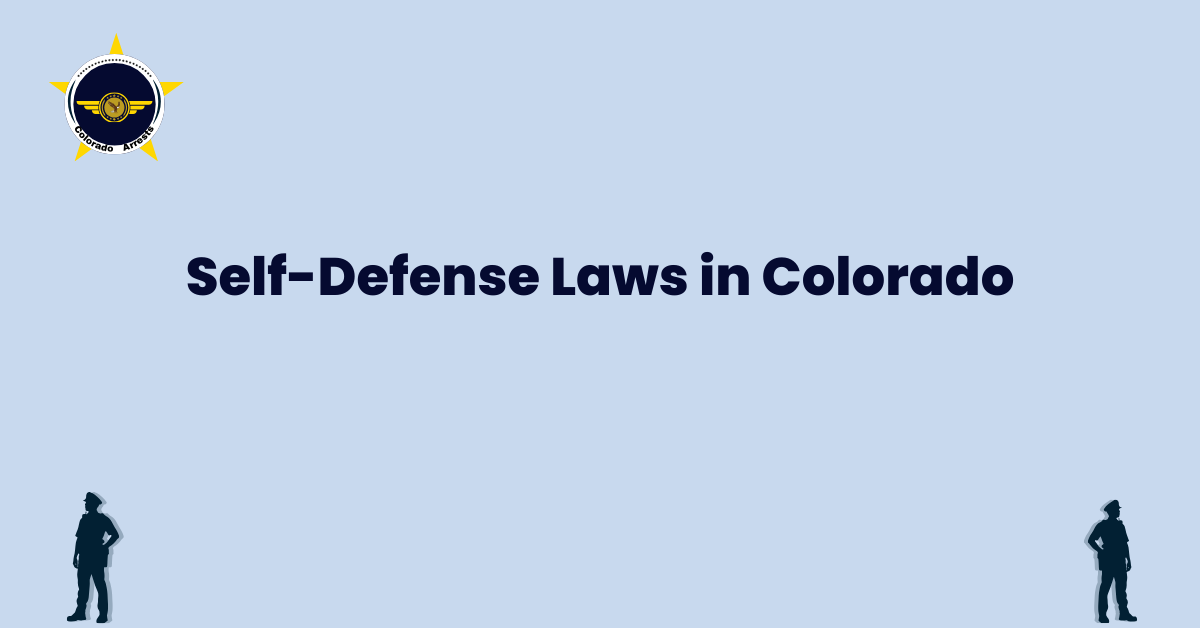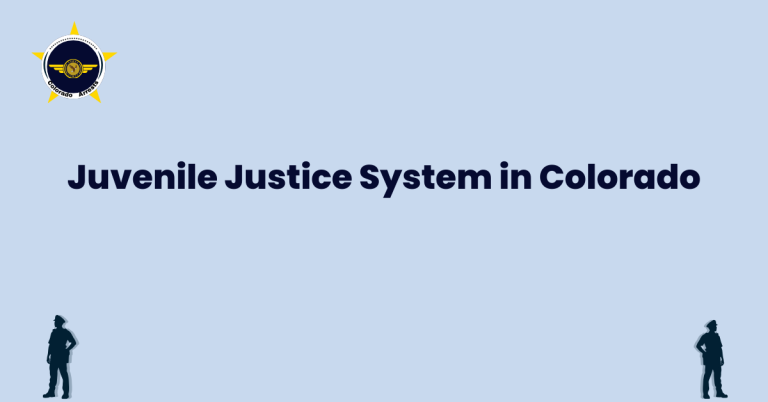Self Defense Laws in Colorado
Colorado, a state known for its stunning landscapes and outdoor activities, also has its own set of self defense laws that every resident should be aware of. Understanding these laws is crucial to ensure your safety and protect your rights in any situation. Whether you’re a long time resident or a visitor exploring the beautiful Rocky Mountains, this informative guide will provide you with a comprehensive overview of self defense laws in Colorado.
In Colorado, self defense is a legal concept that allows individuals to protect themselves or others from harm. The state follows the principle of “stand your ground,” which means that you have the right to defend yourself without the obligation to retreat first, as long as you are in a place you have the right to be. However, it’s important to note that the use of force must be reasonable and proportionate to the threat you are facing.
The Castle Doctrine
One important aspect of self defense laws in Colorado is the Castle Doctrine. This legal principle allows individuals to use force, including deadly force, to protect themselves or others inside their own home or property. The Castle Doctrine recognizes that your home is your sanctuary, and you have the right to defend it from intruders or attackers.
Stand Your Ground
In addition to the Castle Doctrine, Colorado also follows the principle of “stand your ground.” This means that you have the right to defend yourself without the obligation to retreat first, as long as you are in a place where you have the right to be. Whether you are in your home, at your workplace, or in a public space, you have the right to stand your ground and protect yourself from imminent harm.
Reasonable and Proportionate Force
While Colorado recognizes the right to self defense, it’s important to remember that the use of force must be reasonable and proportionate to the threat you are facing. This means that you cannot use excessive force or escalate a situation unnecessarily. The law expects individuals to make a reasonable judgment about the level of force necessary to protect themselves or others.
Imminent Threat
Self defense laws in Colorado require that there is an imminent threat of harm in order to justify the use of force. This means that you must reasonably believe that you or someone else is in immediate danger of physical harm or death. It’s crucial to assess the situation carefully and act accordingly to protect yourself and others.
Retreat as a Last Resort
While Colorado follows the principle of “stand your ground,” it’s important to note that retreat should always be considered as a last resort. If you have the opportunity to safely leave the situation without using force, it may be advisable to do so. However, the law does not require you to retreat if you are in a place where you have the right to be and facing an imminent threat.
Legal Consequences
It’s important to understand that self defense is a legal defense, meaning that you may need to prove in a court of law that your actions were justified. If you use force in self defense and are charged with a crime, it’s essential to consult with an experienced criminal defense attorney who can help protect your rights and navigate the legal process.
Stay Informed, Stay Safe
Knowing and understanding the self defense laws in Colorado is crucial for your safety and the safety of those around you. By familiarizing yourself with these laws and staying informed about any updates or changes, you can ensure that you are prepared to protect yourself and make informed decisions in any situation. Remember, self defense is your right, but it must always be exercised responsibly and within the boundaries of the law.
FAQs
What is the concept of self defense in Colorado?
In Colorado, self defense is a legal concept that allows individuals to protect themselves or others from harm. The state follows the principle of “stand your ground,” which means that you have the right to defend yourself without the obligation to retreat first, as long as you are in a place you have the right to be. However, it’s important to note that the use of force must be reasonable and proportionate to the threat you are facing.
Can I use self defense if I am being attacked?
Yes, if you are being attacked or facing imminent harm, you have the right to use self defense in Colorado. However, it is crucial that the level of force used is reasonable and necessary to protect yourself or others. It’s always recommended to try to avoid or de escalate a situation whenever possible.
Are there any limitations to self defense in Colorado?
While self defense is allowed in Colorado, there are some limitations to consider. You cannot use self defense as a justification if you are the initial aggressor or if you are engaged in criminal activity. Additionally, the level of force used must be proportionate to the threat you are facing.
Can I use deadly force to defend myself in Colorado?
Yes, in certain situations, you may use deadly force to defend yourself in Colorado. However, it is important to remember that the use of deadly force should be a last resort and only used when there is an immediate threat of death or serious bodily harm. The decision to use deadly force should be based on the reasonable belief that it is necessary to protect yourself or others.
What should I do if I have to use self defense in Colorado?
If you find yourself in a situation where you need to use self defense in Colorado, it is important to follow these steps_
- Ensure your safety first and foremost.
- Contact the authorities and report the incident.
- Provide a detailed account of what happened and any evidence you have.
- Cooperate with law enforcement and follow their instructions.
- Seek legal advice to understand your rights and responsibilities.
Are there any specific self defense laws for certain locations in Colorado?
No, the self defense laws in Colorado apply uniformly throughout the state. However, it is important to be aware of any specific rules or regulations in certain locations, such as private properties or government buildings, as they may have their own policies regarding self defense.







